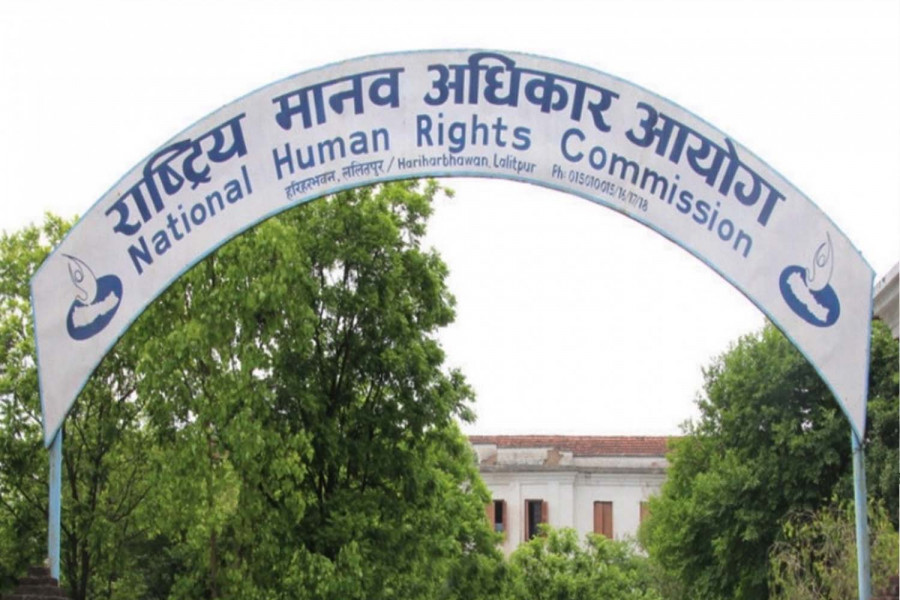Editorial
NHRC’s failings
The commission chairperson and members resigning would be the fastest way out of the current crisis.
The National Human Rights Commission (NHRC) has of late been on the news for doing things other than defending human rights. After a stern warning, which went unheeded, the Global Alliance of National Human Rights Institutions (GANHRI) has recommended downgrading Nepal’s constitutional human rights watchdog to ‘B’ status. GANHRI had earlier warned the commission to mend its ways to continue to enjoy its ‘A’ status. The issue of contention was the commission's failure to justify the appointment of chairperson and members. The alliance had asked if they were appointed on the basis of Nepal's domestic laws and essential requirements of Paris Principles that emphasise transparency and minimal political interference. The commission could not respond with a satisfactory answer, as a case related to the appointments continues to be sub-judice in the Supreme Court. The alliance also took serious exceptions to the commission's work—or lack of it—in addressing human rights issues including discriminations on the basis of gender, ethnicity, sexuality and caste.
The commission's story is symbolic of what ails Nepal's public institutions—utter disregard for their fundamental values and unwarranted proximity to the party or politicians in power. Its impending downgrade reflects not just problems within the commission but also highlights how issues of human rights continue to be neglected in Nepal. The rights body has often limited itself to releasing press statements, rather than swinging into action, in response to grave concerns of human rights abuse. While it has done some commendable work—for instance in holding the government accountable for extrajudicial killing of Communist Party of Nepal leader Kumar Paudel and custodial death of Bijay Mahara—most of its activities have often been perfunctory. At other times, its work has been ineffective, even controversial, as the body has failed to end impunity and ensure optimum adherence to universal principles of human rights.
The imbroglio the NHRC has found itself in also brings into question Nepal's second term at the United Nations Human Rights Council. An obvious question arises: If Nepal cannot ensure human rights within the country, how can it justify its re-election in the global body? The only way it can do so is by working to ensure maximum adherence to universal principles of human rights. For that, institutions such as the NHRC should be allowed to function independently, and its appointments and actions should not smell of political interference. Moreover, Nepal has failed to address insurgency-era abuses of human rights as its transitional justice mechanism continues to be hobbled by political interference and dishonesty. The GANHRI's warning should, therefore, be a lesson for every Nepali public institution that their actions are under international scrutiny, and that they should work to meet optimum global standards in the way they function.
The commission still has a year to prove, through solid documentary evidence, that it is functioning in compliance with the Paris Principles before it loses its top international status. The shortest and fastest way out of the current crisis would be for the NHRC chairperson and members, all appointed without due process, to resign on their own. They can either ignominiously cling on to their posts till the Supreme Court axe eventually falls on them, or they can bow out now with a smidgen of dignity intact.




 13.12°C Kathmandu
13.12°C Kathmandu














